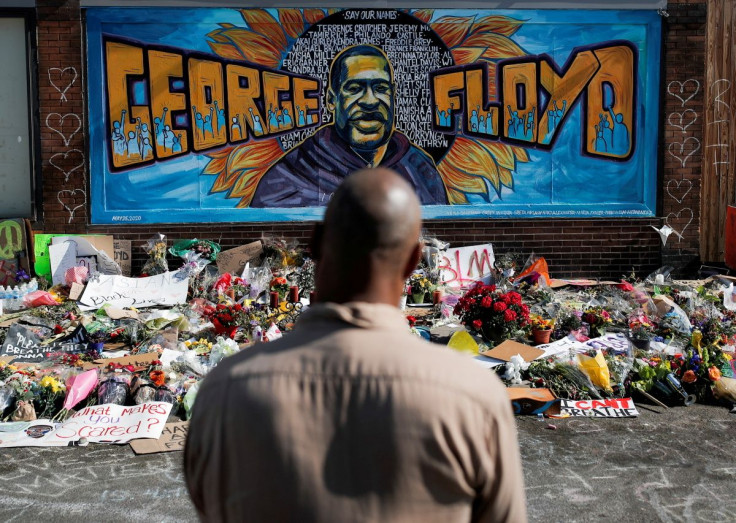Minnesota Jury To Hear Closing Arguments In George Floyd Arrest Trial

A jury was due to hear closing arguments on Tuesday in the federal trial of three former Minneapolis police officers charged with violating the civil rights of George Floyd during May 2020 arrest that lead to his murder.
Tou Thao, 36; J. Alexander Kueng, 28; and Thomas Lane, 38, have all pleaded not guilty to charges they willfully denied Floyd's right to receive medical aid in police custody. Thao and Kueng are also charged with willfully breaching the 46-year-old Black man's rights by not intervening while their colleague Derek Chauvin, who is white, knelt on Floyd's neck for more than nine minutes.
Chauvin, 45, was sentenced to 22-1/2 years in prison after being convicted of Floyd's murder at a separate state trial last year. The federal trial in the U.S. District Court in St. Paul hinges on when an officer has a duty to intervene in a colleague's misconduct and has shone a light on a deeply hierarchical culture at police departments.
All three defendants testified in their own defense, saying they deferred to Chauvin's many years of experience as the most senior officer on the scene. Lane and Kueng, who pinned down Floyd's buttocks and legs as Thao stood nearby keeping onlookers on the sidewalk, have emphasized that they were rookies only a few days out of training.
The men said they did not grasp that Floyd was dying beneath Chauvin's knee, and assumed that, with 18 years on the force, the officer knew what he was doing.
Prosecutors have repeatedly drawn attention to the horrified bystanders on the sidewalk, most of whom had no medical training but correctly observed that Floyd had fallen unresponsive and screamed at officers to check Floyd's pulse. Some appeared on the stand during the near three weeks of testimony.
Kueng can be heard in body-worn camera videos telling his colleagues twice he cannot find a pulse. He told the jury he did not take from this that Floyd's heart had stopped, but decided instead that the handcuffs were preventing him from checking the pulse successfully.
The jury will later begin deliberating. All three men faces years in prison if convicted, and are also due to stand trial in a Minnesota court in June on state charges of aiding and abetting Floyd's murder.
© Copyright Thomson Reuters {{Year}}. All rights reserved.





















